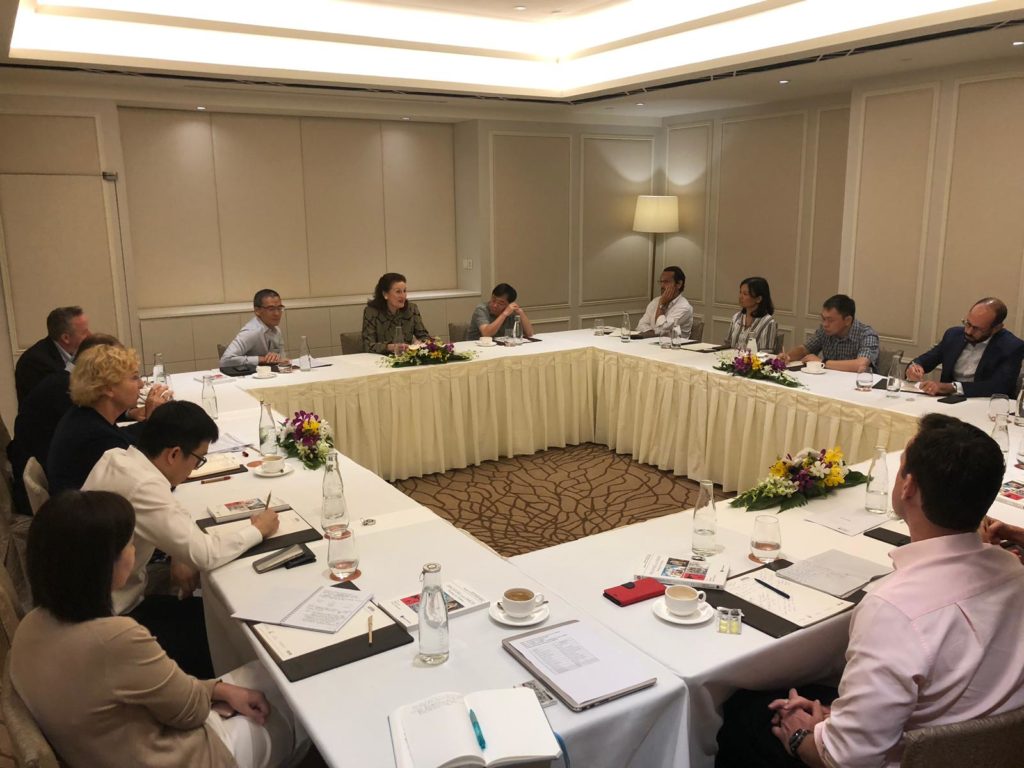By Natalie Kennedy
Thinking globally, acting locally
Franklin Delano Roosevelt gave his last fireside chat in 1944; these were a series of talks from the US president which were delivered over the radio as a way to break down barriers of communication and reassure the public during a time of war. Two years later, the United Nations Children’s Fund (UNICEF) was born, to provide humanitarian relief for children affected by WWII.
And then, two years after that, the world saw the arrival of Henrietta Fore, now the Executive Director of UNICEF since January 2018.

In her own fireside chat with 12 APC members in August at the Fullerton Hotel in Singapore, Ms. Fore shared her own personal connection to philanthropy, with a sense of giving instilled by her parents – a Swiss mother who had known Europe in wartime and understood the need to help others, and a father who went away to war at the age of 15, became an engineer, and reinforced the need for structured services. For Henrietta, these values of giving and structure, and an appreciation of the power of collaboration between the private and public sectors, have driven her love of what she calls “tri-sector athletes”.
With the idea of connecting to APC members as such athletes, Henrietta described UNICEF’s scale as vast – working in 192 countries – but purposefully localized, with individual 5-year cooperation agreements with each country where it operates. Across its operations, UNICEF sees a large number of innovative solutions – in both humanitarian aid and development – but they need help scaling these across geographies, and UNICEF is seeking high-context partners for systems-change activities.
While UNICEF’s core work is in humanitarian aid (50% of its USD 5.3 billion programme budget) and development work, and it has a long track record in primary health care, Henrietta is personally dedicated to two emerging areas for UNICEF: Generation Unlimited (which focuses on the mental health and well-being of youth aged 10-18) and new innovations in support mechanisms, such as the private sector supporting social impact bonds through insurance. She sees these innovations as an efficient way to achieve scale and a massive need for UNICEF and the United Nations.
APC members were interested in how UNICEF works with partners. Partnerships with UNICEF can range from small pilots in a handful of villages, or a more involved coalition aligned toward a longer-term goal; for example, with the goal of connecting every school in the world to the internet, UNICEF may have a partner who is able to front-end some of the funding, an NGO then assists with implementation, and a government may come in later to reimburse or scale.
Appropriately, Roosevelt’s last fireside chat was about the importance of teamwork and championing a cause to ensure its success. Similarly, APC’s fireside chat with Ms. Fore ended on a note of co-creation, partnership, and scale, with APC members interested in extending the work of UNICEF in the region.
